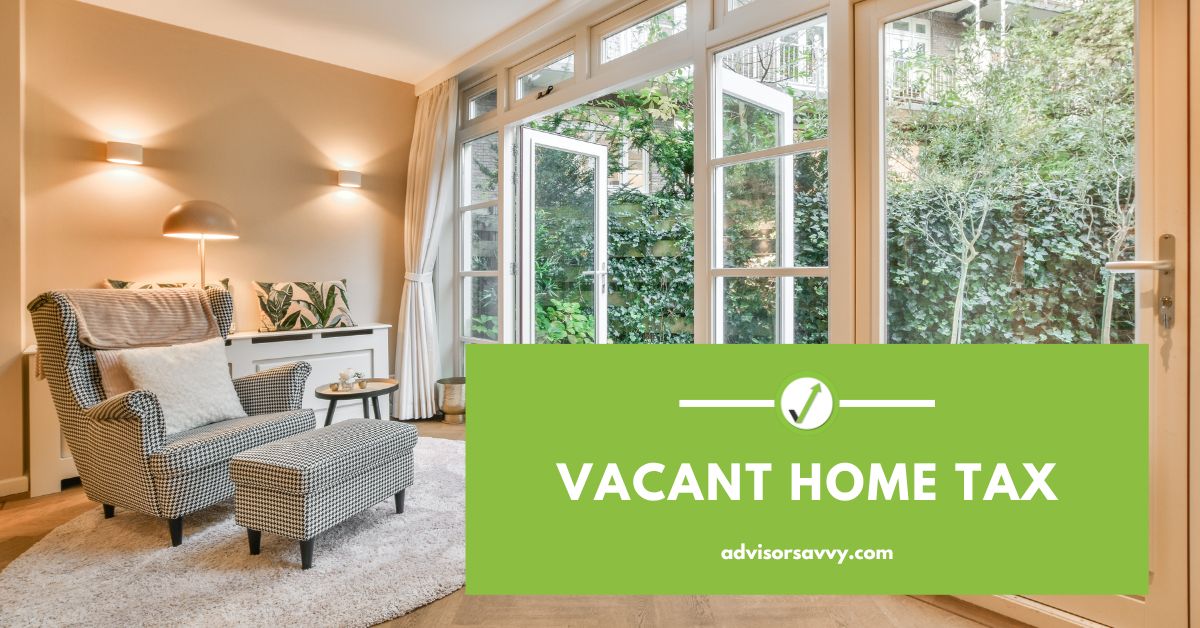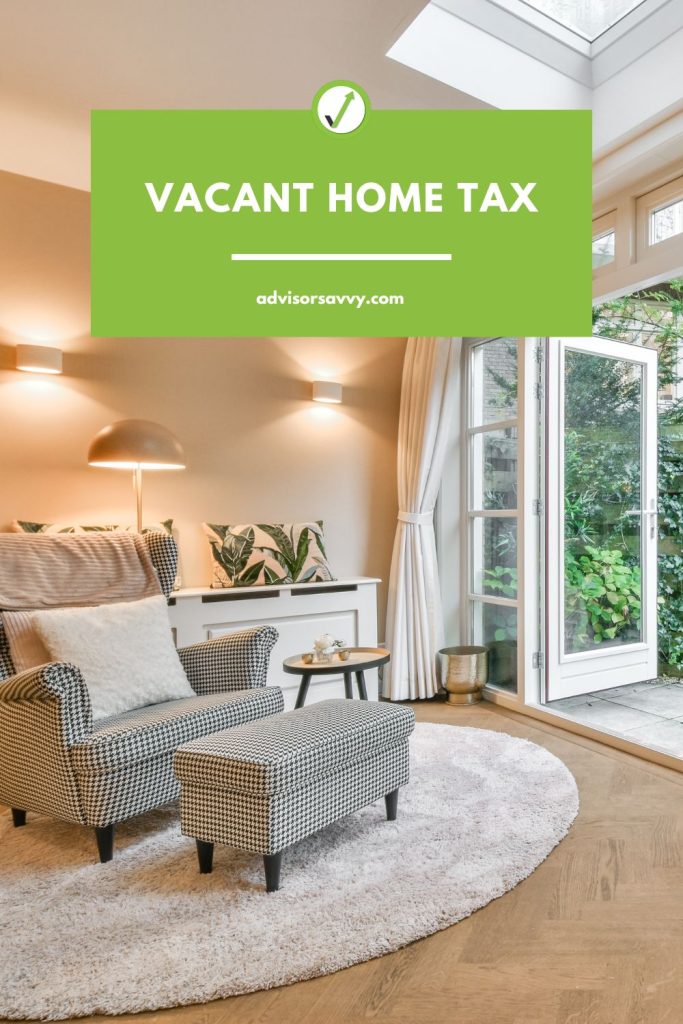
In the last few years, something called the vacant home tax has arrived in Canada. As the name implies, this tax is incurred when someone owns Canadian real estate, but it is unoccupied for the bulk of the year. This is another cost property owners have to consider. Fortunately, it’ll only apply if your property is vacant for most of the year. If you live in your home, or rent it out to someone else, then this tax won’t apply to you. Ready to learn more? Everything you need to know about vacant home tax in Canada can be found below.

Table of contents
What is vacant home tax?
As the name suggests, it’s a tax that arises on homes which are unoccupied for extended periods of time. It’s also being referred to as the empty home tax or underused housing tax. At the time of writing, the vacant home tax is only in effect at the federal and municipal levels in Canada, not the provincial or territorial level.
What is vacant home tax property status declaration?
As a part of the vacant home tax, all Canadian homeowners are required to submit a vacant home tax property status declaration annually. You should receive a notice in the mail around tax time, usually in January. It will instruct you on how to complete the declaration and you will be required to do so by a certain deadline. Even if you don’t have to pay the vacant home tax, you are still responsible for completing the declaration as a Canadian homeowner.
Why are vacant homes a problem?
As many Canadians are aware, there is a housing problem in Canada. Some might even call it a housing crisis. Part of the problem arose from foreigners purchasing property in Canada as an investment thereby reducing the supply for Canadians looking to buy a home. When supply reduces, demand increases, which pushes up the price.
In response, the Canadian government implemented an additional tax on foreign buyers. This helped a little, but not enough to truly fix the problem. Many foreigners were still purchasing property and eating the extra cost. As of January 1, 2023, the Canadian government banned foreigners from buying property in Canada at all. This is formally known as the Prohibition on the Purchase of Residential Property by Non-Canadians Act. It is still too soon to tell if this legislation will cool the hot housing market in Canada. However, many remain hopeful.
Despite this new legislation, there are still a lot of foreigners and others who own real estate in Canada as an investment. Meaning, they are aware of how lucrative real estate is in Canada so they purchase property and hold it to build wealth, but don’t necessarily live there. This leaves a lot of homes empty throughout the year. Obviously, this poses many challenges because it reduces the amount of property available to Canadians who are looking for a place to own and live.
Related Reading: What is Home Insurance?
How much is the vacant home tax?
All of Canada has a general vacant home tax at the federal level. It’s being called the Underused Housing Tax. The tax is 1% annually. It’s calculated as 1% multiplied by the current value of the residential property. If there are multiple owners of the property, the tax would be split based on your percentage of ownership.
What is the vacant home tax in Ontario?
There is no provincial empty home tax in Ontario at the time of writing. However, the two major cities in Ontario, Ottawa and Toronto, have their own municipal tax for vacant homes. In Toronto, the vacant home tax is also 1% of the property’s value. In Ottawa, it’s called the vacant unit tax and it is also 1% of the property’s value.
The City of Hamilton is planning to implement a similar tax as well. It will likely follow behind Ottawa and Toronto in terms of the 1% rate and eligibility criteria.
How much is the vacant home tax in BC?
There is no provincial empty home tax in British Columbia at the time of writing. Although, Vancouver has a empty homes tax. Currently, the tax is 3% of the property’s value, but it is set to increase to 5% in 2023.
Related Reading: Best Places to Retire in Canada and Why
How does the vacant home tax work?
The process begins with an annual declaration. You will receive a notice in the mail regarding the declaration if you’re a Canadian homeowner. The period for determining vacant home tax is the same as the tax year, January 1 to December 31. If your home was unoccupied and vacant for most of the year (six months or longer), the tax will apply to you. You will have to make this declaration to the Canada Revenue Agency.
If you owe the tax on an empty property, the next step is to complete and file the UHT-2900 Underused Housing Tax Return. It is due by April 30, the same deadline as your personal taxes. The last step is to pay the tax to the Canada Revenue Agency.

Match to your perfect advisor now.
Getting started is easy, fast and free.
Related Reading: Estate Taxes in Canada
How can I avoid vacancy tax?
You can avoid the tax on empty homes in Canada by doing the following:
- Awareness. Understanding how the underused housing tax works is the best way to avoid it. As long as you occupy your home for the majority of the tax year, you can avoid the vacant home tax. Although, the tax is relatively new in Canada. Be sure to stay vigilant of evolutions to the legislation and taxation criteria.
- Consider other investments. Due to the additional tax, real estate might not be as lucrative of an investment anymore. If that’s you, consider pulling your money out of real estate and putting it into other investments. This could be foreign real estate, such as in the United States or other parts of the world where empty home tax doesn’t apply.
- Consider the exemptions. There are certain exemptions from the tax, even if the home was unoccupied for the majority of the tax year. For instance, if the property is owned by a corporation or was newly constructed. Review the exemptions to see if you meet any of the criteria.
Related Reading: Financial Planning Tips for Students and Young Professionals
Can I buy a house and leave it empty?
Yes, you can buy a house and leave it empty. In fact, it’s your right to do so because it’s your property. Many people do this because they are interested in investing in real estate, but not necessarily interested in using it as a personal residence. In this instance, the vacant home tax will apply on Canadian property. If you don’t wish to incur the vacant home tax, then don’t buy real estate you don’t intend to live in for the majority of the year in Canada.
Read More: Buying a House in Canada: Financial Considerations
